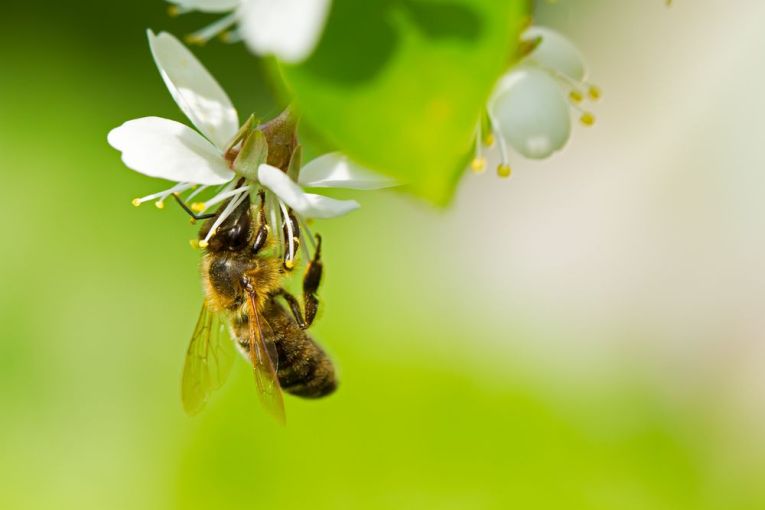As it's not people, it probably won't concern many authorities, but the bee deaths described here are disgusting. The only possible killer under suspicion seems to be some landscapers who ignored pesticide instructions and just sprayed away. The linden trees were in bloom, and that means the ladybirds that fed on the aphids being sprayed and all the nectar drinkers and pollinators in Oregon were dealt a deadly dose.
50,000 bumble bees and honey bees were counted in the car park, as the finger of suspicion moved from the trees themselves to any spraying activity. Neonicotinoids are the infamous insecticides used to kill species such as greenfly (aphids). Shell and Bayer developed them to replace the disgraced organophosphates, leaving imidacloprid (used here under the name of "Safari") now dominating the worldwide market. But if US authorities allow mistakes like this to happen, no wonder bees in almost every nation are indicating with their deaths that this insecticide is simply too dangerous.
It has been linked to many bee deaths in many different locations and can be toxic to humans through its breakdown products. As we reported previously, the European Union have banned such products because of the honey-bee effect (specifically, honey bee colony collapse disorder.)
The Linden trees in Wilsonville have now been covered with netting for 2 weeks in order to "protect the bees". With The National Pollinator Week of the US now a laughing stock, the state Department of Agriculture have now made it clear that the 55 trees were sprayed on Saturday, while they were in bloom. Their spokesman, Dale Mitchell reported, "The state is investigating any violation of pesticide laws, which could take up to four months." Now we have to face up to the fact that the qualification to spray insecticides may not be ours to give out.
Unless we can somehow modify natural pesticides, it seems our methods of controlling inconvenient species is to blast them and damn the consequences. The future is still bleak unless the easy way out is avoided, in order to find ways of helping agriculture without destroying harmless animals and plants. There are quite a few genetic and organic ways of controlling populations, so that huge infestations of crops or trees, in this case, are dealt with in a rational and sane manner.










